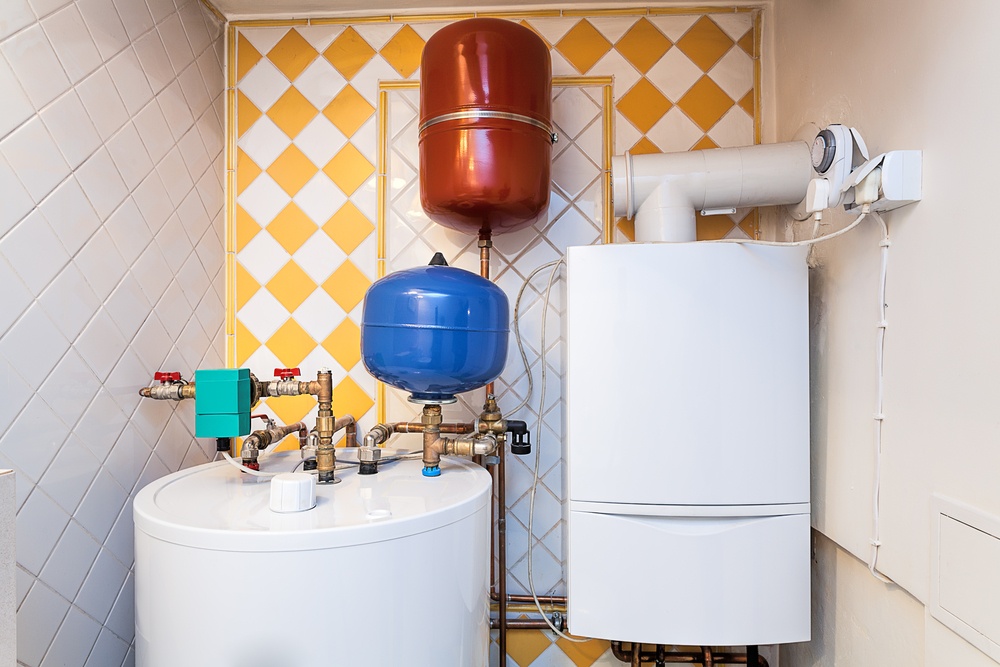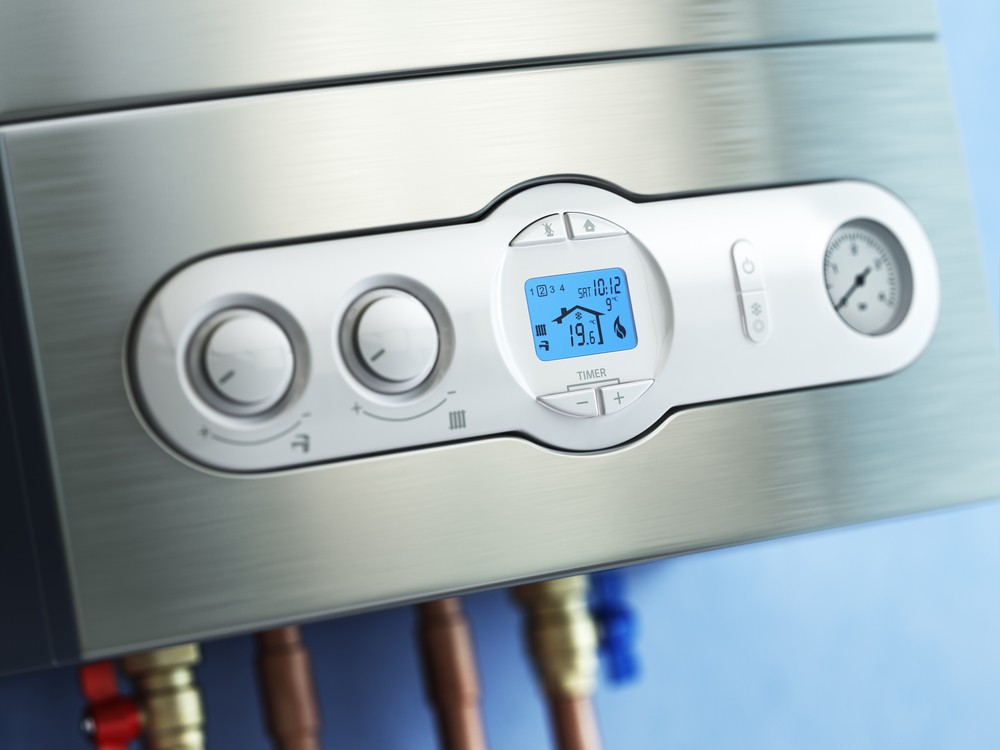This question bothers a lot of buyers when it comes to choosing an energy efficient water heater. There are many factors to consider – fuel type, water capacity, size, mode of operation, and cost. But energy efficiency is the factor that homeowners are prioritizing more these days. The efficiency of your water heater implies both electricity or fuel your water heater uses and its capacity to preserve and maintain water that’s already been heated. Various types of hot water systems and how they compare in terms of efficiency are described below.

Conventional Storage Tank Water Heaters
Conventional hot water heaters are still the most wide-spread option in U.S. homes. Conventional tanks have a supply of between 20 to 80 gallons of hot water handy and ready to use. The tank refills from the bottom with cold water and can be fueled with electricity, gas, propane, or fuel oil.
Since hot water is stored in a water heater tank, energy is likely to be lost from the tank through standby heat loss. A water heater model with good insulation protects the unit from heat loss.
The bigger your water heater tank is, the less efficient it’s going to be. The water heater tank that does not cost much upfront can often have the highest operating costs and yearly expenses, so take into consideration both the short and long-term expenses when choosing your water heater.
Tankless/on Demand Water Heaters
Tankless water heaters are also in great demand due to their energy and cost saving potential. Tankless water heaters heat water as it runs through a pipe with gas or an electric element. Because these units don’t have a need to store hot water, there’s no standby heat loss. However, the flow rate of a tankless water heater is limited by its output. This means that two working appliances that use hot water at the same time, such as the shower and the washer, might exceed the limits of the tankless system. For homes that employ less than 40 gallons of hot water a day, a tankless heater can be 24-34% more efficient, while for homes that use more hot water, they can only be 8-14% more efficient.
Smart Water Heaters

Smart water heaters have recently emerged at the market and are a combination of the electric water heater, an electronic thermostat, and a digital user interface screen. What makes these water heaters truly smart is that they are able to automatically adjust water temperature according to homeowner’s hot water needs and reduce standby heat loss, saving money. Many smart water heaters are also configured with easy-to-read diagnostic and error codes, that help the owner determine whether he needs to make a service call to the plumber.
Heat Pump and Tankless Coil/Indirect Water Heaters
Water heaters of this kind employ your home heating system or another heat source to generate energy to heat up your water. They are generally very efficient, but it’s important to consult a professional plumber to determine your personal needs and the best water heater option for you. And by the way, professional plumbers work at Pomona Valley Plumbing Heating & Air Conditioning!
Gas Water Heaters VS Electric Water Heaters
Water heaters powered by natural gas typically cost less to operate on a monthly basis than their electric counterparts. And they still work when the power goes out. Electric water heaters heat water more efficiently than gas models but often have higher energy costs, since electricity costs more than natural gas. If your home already has a gas water heater, there’s no need to switch to electric one.
Tankless Water Heaters VS Solar Water Heaters
Below is a summary of the pros and cons of each of the units. See for yourself which system will be the most energy-efficient.
Tankless Water Heaters
Pros:
- Constant supply of hot water on demand
- Does not unnecessarily heat a full tank of water
- Compact design
- More affordable than solar unit
- Comes in gas or electric units
- High efficiency factor
- Plumbing is the same as that of a standard tank type
- Usually saves +/- 40 percent of energy used by traditional tank type water heater
Cons:
- If an electric water heater is installed, it will most likely require an upgrade to electrical panel to compensate for extra amps needed.
- Requires more of an initial investment than conventional tank-type heaters.
- Electric is really helpful where gas is not available, although you are using a non-renewable source.
Solar Water Heaters
Pros:
- Draws energy from renewable resource
- High efficiency factor
- The least expensive way to heat water
- Simple system to install and maintain
Cons:
- More of an upfront investment and longer payback period
- Drain-back and storage tanks require more storage space than tankless units
- More parts involved, consequently more chances for repair
Ultimately, which water heater to choose for your household is up to you. Weigh your options and go with the most energy-efficient unit. If you still hesitate, contact Pomona Valley Plumbing Heating &Air Conditioning (a full-scale plumbing contractor) and we will help you make the right choice.


